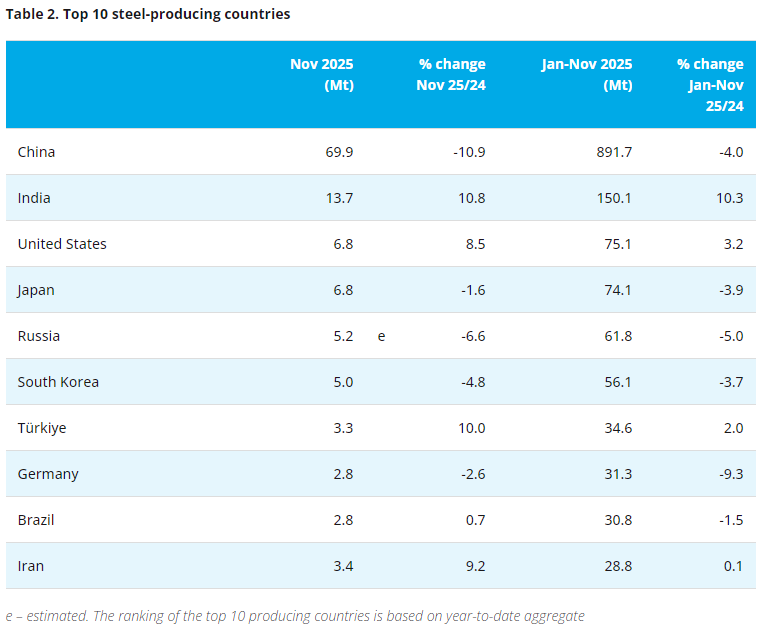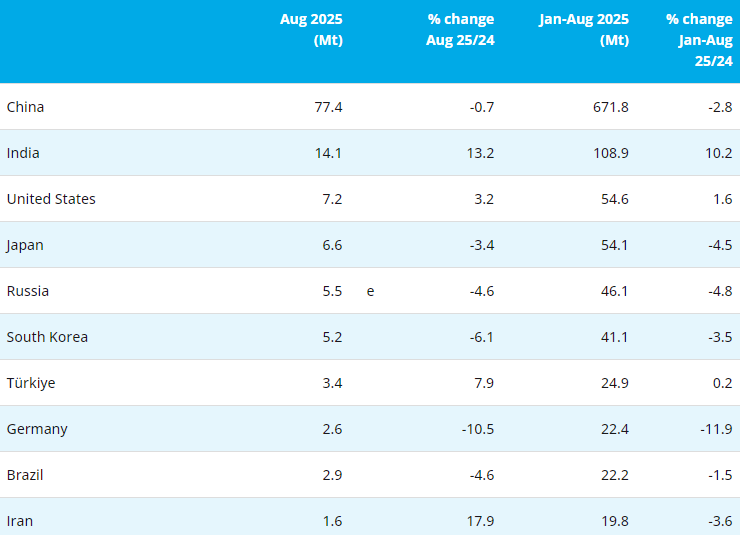[Ferro-Alloys.com] ArcelorMittal Nippon Steel ramping up domestic investments despite steel price slump
Despite a challenging global environment marked by tariff tensions and weak steel prices, ArcelorMittal Nippon Steel (AMNS) India remains bullish on the Indian market, with aggressive capacity expansion plans and a long-term commitment to self-sufficiency in steel production.
In an exclusive conversation with Business Today TV, Ranjan Dhar, Director and Vice President – Sales and Marketing at AMNS India, said the company is heavily investing in expanding its production capabilities. The confidence, he said, stems from India’s increasing steel consumption and the country’s ambition to become a global manufacturing powerhouse. “India’s per capita steel consumption is still low — around 93-94 kg compared to the global average of 226-227 kg. To even reach that average, we’ll need to more than double our current production,” Dhar noted.
The company will invest $30 billion in India over the next decade with expansion in Hazira, Odisha and Andhra Pradesh.
Importantly, he emphasized that the company’s expansion strategy is focused on the domestic market. “The good part is that these expansions are not export-oriented — they are being built for the domestic market. There may be a small export percentage, but the priority is to serve India’s growing needs.”
Dhar highlighted India’s demand growth in infrastructure, automotive, appliances, and industrial development, stating that these segments will continue to drive steel consumption. He also stressed that India’s push to be a global manufacturing hub hinges on the availability of high-quality steel. “With the combined strength of ArcelorMittal and Nippon Steel, we have the experience and know-how to bring future-ready steel products to India,” he said.
However, Dhar sounded a note of caution on the current state of the steel industry. “Steel prices are at a four-year low, while input costs have not declined at the same pace. This has severely squeezed margins,” he said. “For the steel sector to survive and reinvest in future capacity, margins need to improve.”
He attributed some of this pressure to a significant rise in imports last year — over 20% — which hurt domestic players. Dhar acknowledged that the Directorate General of Trade Remedies (DGTR) has recommended protective measures to support local manufacturers. “We hope to see some government action soon, as the Indian steel industry remains one of the biggest contributors to private capex in the country. Sustaining this momentum requires a viable margin structure.”
On the question of price increases, Dhar clarified that pricing would ultimately be determined by market dynamics. “There is no single factor driving prices. It will depend on how demand evolves and how policies shape the landscape. He also said that the margins are grossly starved and do need to improve
Invitation forThe 21st China Ferro-Alloys International Conference

- [Editor:tianyawei]



 Save
Save Print
Print Daily News
Daily News Research
Research Magazine
Magazine Company Database
Company Database Customized Database
Customized Database Conferences
Conferences Advertisement
Advertisement Trade
Trade

















Tell Us What You Think